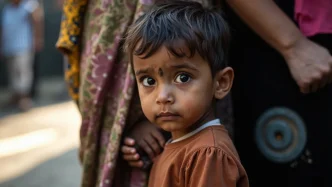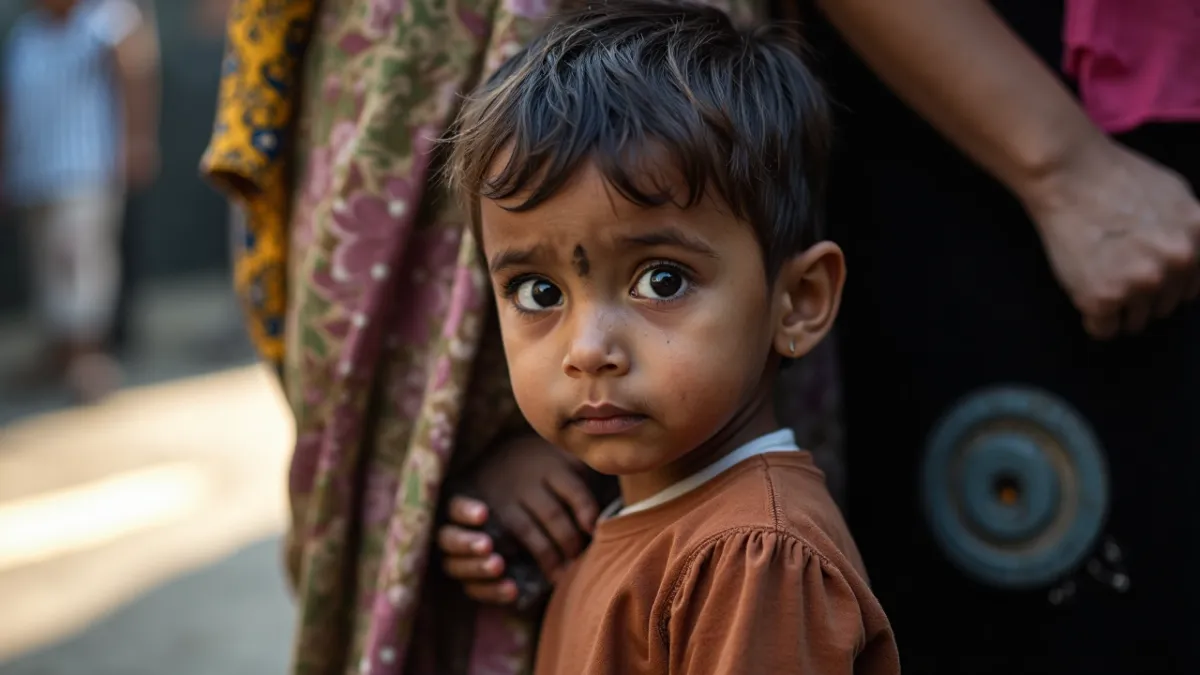Myanmar is plunging into an unprecedented humanitarian disaster, with millions facing starvation, displacement, and violence as military attacks escalate and international aid efforts falter. The UN’s top human rights official, Volker Türk, delivered a chilling assessment to the Human Rights Council in Geneva, warning that the country’s descent into chaos shows no signs of abating nearly four years after the military coup of February 2021.
A Nation in Freefall
The scale of suffering in Myanmar is staggering. According to the UN High Commissioner for Human Rights, nearly 6,800 civilians have been killed since the coup, while over 22,000 remain arbitrarily detained. Humanitarian needs have skyrocketed, with almost 22 million people—roughly two-fifths of the population—requiring assistance. More than 3.5 million have been displaced by relentless conflict, many living in makeshift camps or fleeing across borders under perilous conditions.
“The report I am presenting today is about the people of Myanmar and their aspirations for a better future” said Volker Türk, emphasizing the resilience of a population striving for peace and democracy despite overwhelming odds. Yet, the reality on the ground paints a far grimmer picture, as military repression and systemic failures continue to crush those hopes.
Earthquake and Military Escalation
The crisis took a devastating turn following a catastrophic earthquake on March 28, 2025, which claimed nearly 4,000 lives and left six million in urgent need of aid. Rather than prioritizing relief, the Myanmar military intensified its campaign of violence, launching over 600 strikes in the aftermath, according to the UN human rights office (OHCHR). Shockingly, 94 percent of these attacks occurred during supposed ceasefire periods, with schools, religious sites, and other protected civilian areas frequently targeted.
This blatant disregard for humanitarian norms has drawn sharp condemnation from UN officials. Tom Andrews, the UN Special Rapporteur on the situation in Myanmar, accused the military junta of weaponizing aid, noting reports of humanitarian workers being physically blocked at checkpoints and earthquake survivors evicted from shelters with nowhere to go. “The junta has chosen to use aid as a weapon” said Andrews, highlighting a deliberate strategy to exacerbate suffering.
Rakhine State: A Flashpoint of Despair
In Rakhine state, the situation is particularly acute. Civilians, especially the minority Muslim Rohingya, find themselves trapped between the Myanmar military and the Arakan Army, an ethnic armed group engaged in fierce combat. The military’s ongoing obstruction of humanitarian access has deepened an already dire crisis, leaving communities without food, medical care, or shelter.
The Rohingya, long subjected to systemic persecution, face heightened risks as violence flares. Many who attempt to flee encounter deadly obstacles, with nearly one in five people attempting sea crossings in the region reported dead or missing in 2025 alone. The breakdown of public institutions and economic collapse—where nearly four in five people live below or just above the poverty line—only compounds the desperation driving these dangerous journeys.
International Support Collapses
Compounding the crisis is a catastrophic shortfall in international humanitarian funding. As of June 27, 2025, the UN’s $1.14 billion comprehensive response plan for Myanmar is only 12 percent funded, while a $275 million addendum for earthquake relief has reached just 37 percent of its target. This collapse in support comes at a time when the needs of Myanmar’s people have never been greater.
Tom Andrews issued a stark warning about the consequences of this neglect. “At a time when the people of Myanmar need an enhanced level of support from the international community, they are getting the opposite” he said, questioning whether human rights and the lives of Myanmar’s children hold any weight in global priorities. Without urgent action, he cautioned, the toll in human lives and suffering is likely to worsen significantly.
Economic and Social Collapse
Beyond the immediate violence, Myanmar’s economic and social fabric has unraveled. The military’s grip on power has led to a near-total breakdown of public services, leaving millions without access to healthcare, education, or basic infrastructure. An estimated 1.3 million people have fled the country since the coup, many undertaking life-threatening journeys by land and sea in search of safety.
For those who remain, daily survival is a struggle. Inflation, currency devaluation, and disrupted supply chains have driven up the cost of essentials, while military blockades prevent aid from reaching the most vulnerable. In rural areas, farmers have abandoned fields due to conflict, further threatening food security in a nation already on the brink of famine.
Pathways to Hope Amid Turmoil
Despite the bleak outlook, UN officials have outlined potential pathways to stabilize Myanmar and lay the groundwork for a democratic future. Volker Türk proposed four key areas of focus: justice and accountability, democratic governance, economic reform to benefit the people, and sustained international engagement. Central to this vision is the immediate release of all political prisoners and the prosecution of those responsible for grave human rights violations.
“It is imperative for the military to immediately end the violence, allow unhindered humanitarian access and release all arbitrarily detained people” said Türk, underscoring the urgency of halting the cycle of repression. He also emphasized the importance of planning for a future where human rights are prioritized, offering a glimmer of hope to a population battered by years of turmoil.
Challenges of Accountability and Justice
Yet, achieving accountability remains a formidable challenge. The military junta, which seized power in 2021, has shown no willingness to relinquish control or answer for its actions. Reports of extrajudicial killings, torture, and mass detentions continue to emerge, with little prospect of domestic mechanisms delivering justice under the current regime.
International efforts to hold perpetrators accountable, such as through the International Criminal Court or independent investigations, face significant hurdles. Myanmar is not a signatory to the Rome Statute, limiting the ICC’s jurisdiction, while neighboring countries have been reluctant to exert pressure due to geopolitical considerations and domestic priorities. Without a unified global response, the path to justice remains elusive.
The Human Cost of Inaction
The human cost of the crisis is impossible to overstate. Stories of families torn apart by violence, children orphaned by military strikes, and communities forced to flee with nothing but the clothes on their backs are all too common. In Rakhine and other conflict zones, the psychological toll of prolonged trauma is evident in reports of widespread despair and hopelessness.
Humanitarian workers, often risking their lives to deliver aid, describe scenes of unimaginable hardship. Survivors of the March earthquake, already grappling with loss and injury, face the added indignity of being denied shelter and support by a military more focused on control than compassion. The international community’s failure to adequately fund relief efforts only deepens this betrayal.
A Call for Urgent Action
As Myanmar’s crisis deepens, the need for decisive action has never been clearer. UN officials have called on governments worldwide to step up funding for humanitarian programs, press for unrestricted aid access, and support mechanisms for accountability. Without such intervention, millions more risk falling into the abyss of starvation, displacement, and violence.
The question posed by Tom Andrews echoes as a haunting challenge to global conscience: if human rights matter, why are so many reluctant to invest even modest resources to save lives? As the people of Myanmar endure unimaginable suffering, the world’s response—or lack thereof—will shape not only their future but also the credibility of international commitments to justice and humanity.
Amid the darkness, the resilience of Myanmar’s people offers a faint beacon of hope. Yet, whether that hope can be realized depends on actions taken now, before the cost in human lives becomes even more unbearable.
















